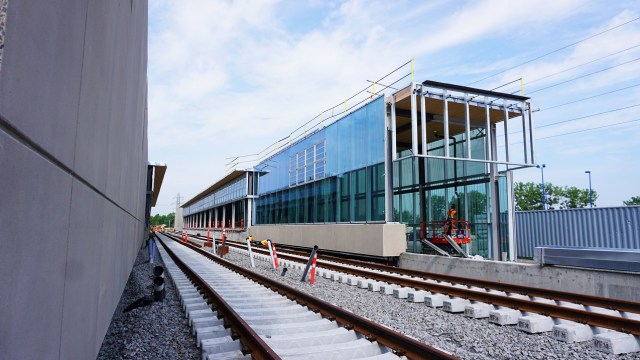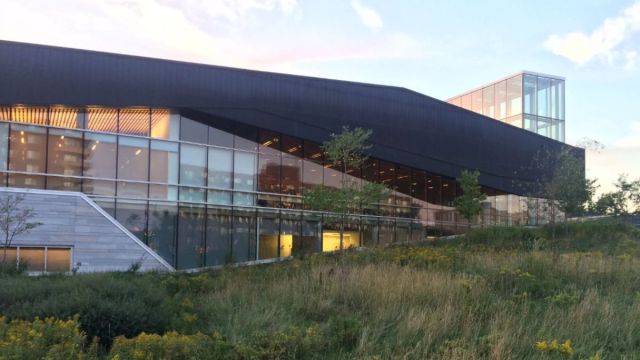Beyond Simulation

Training the next generation of front-line medical workers has entered a new phase at Vanier College with their $220,000 investment for multidisciplinary Simulation Labs. The spaces mirror actual hospital rooms and offer hands on, powerful experiences for the students.
The labs are divided into two sections separated by one-way mirrors. The operational part of the lab is set up to be as realistic a hospital room as possible, and is equipped with monitors and medical equipment donated by various Montreal area hospitals. Four life-like mannequins can be programmed to simulate an array of reactions that a live patient would make while undergoing treatments or procedures.
Behind the mirror is the second section of the room. Teachers can observe students while they work on the patients, and computers allow them to run a live or programmed scenario of symptoms. Physiological data like heart rate, breathing and blood pressure can all be manipulated to force students to react to random changes.
« Having every student engage and treat the patient for health care problems such as a heart attack, an organ failure, or a respiratory crisis will definitely enrich their learning experience and their medical knowledge,” said Vanier Academic Dean Annie-Claude Banville in a statement.
For use of the Nursing and Respiratory and Anaesthesia Technology programs, the labs offer students a realistic setting where they can safely learn their craft.
Better tools
The new simulation labs were built thanks to a $162,000 investment by the Ministry of Education, a $50,000 donation from the Rossy Family Foundation and $5,000 from the Rotary Club.
« It is truly paying off. Many other schools have simulation rooms and we are happy to now be among them. The benefit to our students cannot be underestimated, » explains Respiratory and Anesthesia Program Coordinator Patricia McClurg.
The set-up for the simulations can be very time-consuming, as all details, complications, reactions and possible outcomes must be programed. It can often take weeks to run a fifteen minute scenario. But the lab experiences have become better over time.
It is all worth all the effort, McClurg contends, as student debriefings are much more in-depth and some reactions to the scenarios have been quite visceral.
For her, if students come out of the experience asking « how can I do better next time, » it demonstrates the impact of the labs and exposes them to the type of self-reflection they will need to pursue a career in medicine.




